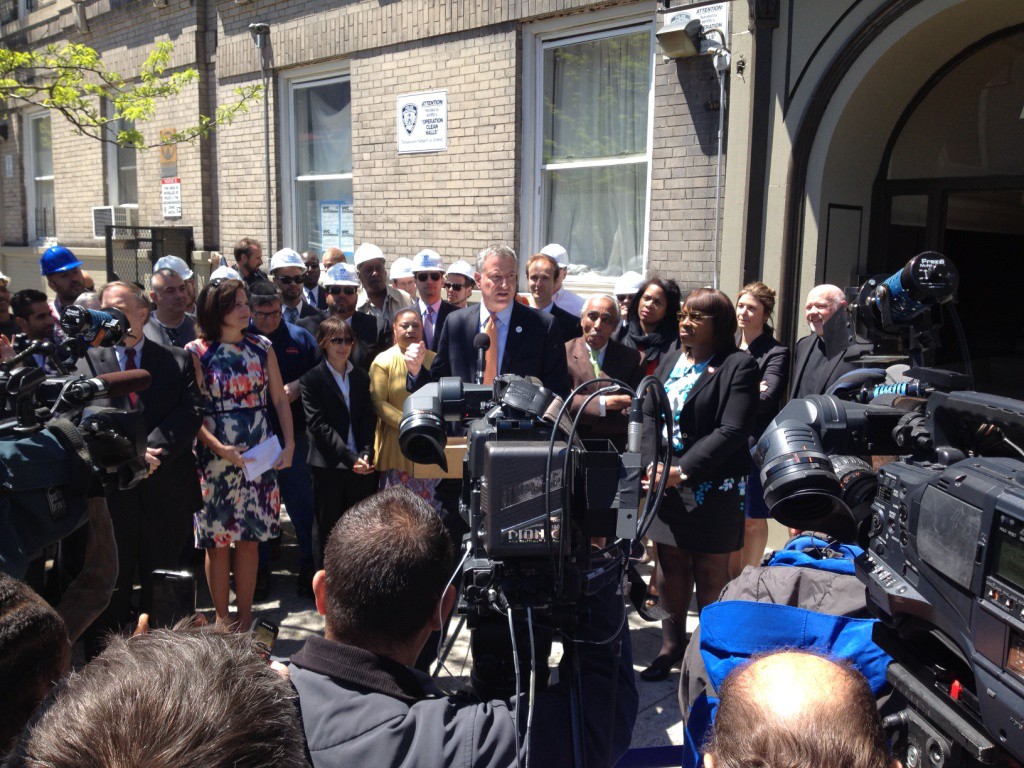
File Photo
Mayor Bill de Blasio’s proposal to create more affordable housing for New Yorkers dubbed Housing New York might hit a bump as community boards, including Community Board 7, will vote for or against the plan.
At issue with CB7, where its general board is expected to vote down the measure when it meets Nov. 17, is the loss of an in-house parking requirement for new buildings that could lead to increased demand for street parking. The rule would apply to neighborhoods falling under a so-called Transit Zone, where there’s ample public transportation for neighbors. In mid-October, CB7’s Land Use and Zoning Committee voted against the plan. The General Board usually follows the recommendations of its committees.
The new set of proposals by de Blasio’s office also includes Mandatory Inclusionary Housing, which would mandate a reserve of about 25 to 30 percent residential floor area in any newly developed property permanently set aside for low- to median-income earners around the city.
The proposal has to go through the lengthy Uniform Land Use Review Procedure (ULURP), which seeks advisory approvals or rejections from 59 community boards, the City’s Planning Commission, and borough boards before any the New York City Council votes on it next spring.
Community boards around the city have organized town halls and special meetings to vote and have an open discussion about the pros and cons of the mayor’s new plan. The plans have residents skeptical over the claims of the program’s claim to create income diverse neighborhoods and affordable income housing while others are simply concerned about parking problems the rezoning will cause in their neighborhoods.
Of the 12 Bronx community boards that voted on the mayor’s plan, only community boards 6 and 9 approved it. “Our Uniform Land Use Review Procedure committee and the Housing and Economic Development committee will be reporting their recommendations at the general board meeting before the voting exercise,” said Dr. Bola Omotosho, chairman of Community Board 5. “At the moment, there are still a lot of questions being asked by [community board] members so that they be well informed before they cast their votes.” Community boards have till the end of November to submit their recommendations on the plan.
Even though the community boards’ votes carry an advisory capacity and not a legal one, they are seriously taken into consideration by the City Council. The Borough President’s office plays a mandated role in the ULURP process, and won’t be taking any position on the amendment until after the public gets its turn to speak on the issue.
“Our office will consider the input of elected officials, community organizations, our community boards and the public-at-large as we develop our position on this issue,” Borough President Ruben Diaz Jr., said in a statement.




